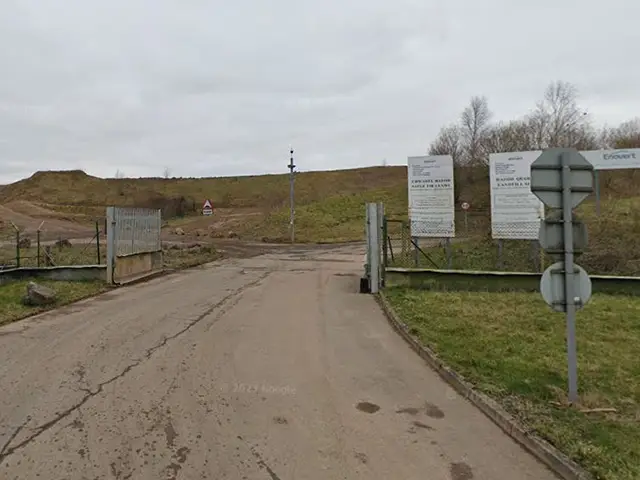A SENEDD committee will hold an inquiry into a landfill site amid concerns about an “unbearable” stench blighting villagers’ lives for the past two decades.
Members of the petitions committee agreed to take evidence after more than 1,100 people signed a petition about the landfill site at the former Hafod quarry in Johnstown, Wrexham.
Steve Gittins, who submitted the petition which calls for the permit to be revoked, said monitoring showed levels of odour as much as four times the recognised detection limit.
But the campaigner argued a monitoring report attempted to downplay the results by citing industrial thresholds that are “entirely inappropriate” for residential areas.
In an update to the committee, Mr Gittins warned persistent odour nuisance is disruptive not only to quality of life but can also impact stress, sleep and mental health.
“This situation is unacceptable and cannot be allowed to continue,” he wrote, adding that the community has for too long felt ignored and abandoned.
Urging the committee to help bring the “nightmare” to an end, Mr Gittins said: “The time for patience has passed. Our community needs clarity, honesty and decisive action.
“We have endured this reality for 19 years – we cannot survive another 37.”
Vaughan Gething, a Labour member of the petitions committee, expressed concerns about the level of “mischief” – a technical term for regular public nuisance – from the landfill site.

He said: “My understanding is that there are relevant readings of substances that affect human health potentially that are still in circulation and people think it’s likely from this site.”
The First Minister-turned-backbencher added: “Having regularly suggested we should close petitions down in the past, I think this is an area when a hearing from this committee – inviting people to give evidence – would be of real value.
“So, I suggest that we invite the operator, Enovert, in, invite the council to give their perspective and we should ask them for written evidence as well.
“We should also ask Natural Resources Wales, as the regulator, about its approach.”
His colleague Carolyn Thomas, the north Walian who chairs the committee, also supported holding a short inquiry as did Plaid Cymru, Conservative and independent members.

Ms Thomas, a former Flintshire councillor and cabinet member, told her colleagues: “It’s not good and the smell, the odour drifts quite a distance as well I believe.”
In his response to the petition, Huw Irranca-Davies – the Deputy First Minister who is responsible for the environment – was loath to use his powers to intervene.
He warned revoking the permit could see the site deteriorate as he argued Natural Resources Wales is best placed to determine the appropriate regulatory action.

Mark Silvester, chief executive of Enovert, stressed that the waste-management firm works closely with the regulator to address concerns about odour.
In a letter to the petitions committee, he pointed to efforts to engage with all interested parties including quarterly “community liaison meetings” held since 2008.
Mr Silvester raised the example of Enovert facilitating installation of monitoring devices and a commitment to an assessment of data by independent environmental consultants. He wrote that work to address the community’s concerns about odour continues.














